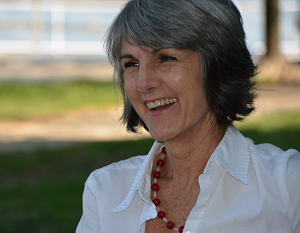I recently had the pleasure of talking with the insightful Joan Friedlander, author of Business from Bed: The 6 Step Plan to Get Yourself Working Again After a Health Crisis. She has written a wonderful guide to creating a business or career that is in alignment with your values and with your health. While I’m off in recovery land, Joan has stepped in to share her wisdom with you. I asked her a few questions related to her book. She is answering the first one today and will be exploring the rest on her blog which I’ll be linking to. Without further ado, I would love to introduce you to Joan…
How to we identify that we’re stuck in the “comparison trap?”
By Joan Friedlander
Great question, Danea. It is both easy and difficult to see when we’re stuck in the “comparison trap.” It depends on how attached someone is to an ideal picture of how they and their life ought to be and on where they are in their illness journey.
The key is the word stuck. Do you feel stuck?
You can find clues in the way you talk about your circumstances, the tone in your voice and the frequency of your repeating thoughts and conversations. Start to listen to what you say to other people. Look back at recent conversations and be honest:
Do you talk about your life before illness as a better life? You might notice yourself saying things like:
- I used to be able to (fill in the blank).
- I used to have (fill in the blank).
- Now I can’t (fill in the blank).
- Things will never be the same as (fill in the blank).
- When someone says something hopeful or future oriented, do you respond with “yeah, but….?”
Thoughts and feelings:
- Do you feel like a failure?
- Do you feel hopeless about the future?
- Do you believe your illness is your fault, that it IS you?
- Are you unwilling to try something new?
- Is your primary aim to get your life (business, career, body) back to the way it used to be?
Caveat: Active symptoms, high levels of pain, exhaustion and medications can distort your view and hinder your ability to get emotional distance. Trust me, during the worst moments of a Crohn’s flare-up, when pain was overwhelming and my trips to the bathroom were too many to count, I didn’t have perspective! At that point my illness was the center of my life, at least when I was at home. You can’t move forward during the acute phase.
What is the first step to finding self-compassion to accept the new reality?
There is a natural grieving period we all go through when something we thought we could rely on is no more. This is true of all loss. So, I’m not here to judge people or suggest that the loss isn’t real, or that life hasn’t changed. I am here to say that our vision of the “before-life” can get skewed, and we often forget the fears, concerns, dissatisfaction, bad habits, poor choices, etc. that went with that rosy picture of The Better Life.
In Business from Bed I offered a short list of questions in Step One: “Beyond Survival –Rising from the Ashes,” to help people take off the rosy glasses and see the fuller picture of life before the setback. Today, I want to offer your readers a different view, something that I’ve been thinking about these past few days.
Look for the hero on your story. Disassociate yourself from the false god of FAILURE.
I have been healthy and flare-free for over 8 years, but I still get Remicade infusions every 12 weeks. The last time was just last week. At the same time I was writing an update in my newsletter about a woman named Judy I met earlier this year who had been in heart failure for about 4 years. The fact that she had joined me for an hour-long interview with her business partner really touched me, especially when I learned that on most days she had 1-2 hours of “productive” energy in her reservoirs, and that was how she chose to use them that day. The update? She had just received a heart transplant.
As I was reflecting on her situation and her determination to use the “waiting time” for something that would help others, and thinking about my own recovery, I was awe-struck the human spirit and the everyday hero that resides within. I remembered just how sick I used to be, too, and that I kept going! Just like Judy did, just like you do.
That’s the place to start. We walk through illness every day and it becomes almost common place. A lot of people are probably glad they’re not walking in your shoes. But YOU are. You wake up, you see how you feel, you make a plan – or not – you do what you do – or don’t – and at the end of the day you go to bed.
So, OK, maybe you have been stuck. By all means, brave the waters of self-observation. Find out if you’ve been holding onto a past that is no more. Then, when you look to the future, remember who YOU are. That’s where you start.
Visit Joan Friendlander’s Website or Pick up a Copy of Business from Bed at Amazon.
